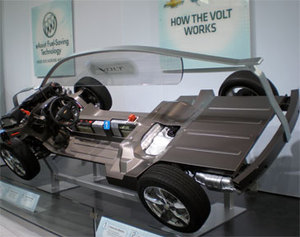 Lithium-ion batteries have been big news for a little while now, with companies such as Tesla investing huge sums in lithium technology to develop storage capabilities for its vehicles.
Lithium-ion batteries have been big news for a little while now, with companies such as Tesla investing huge sums in lithium technology to develop storage capabilities for its vehicles.
With this investment, the amount of energy that's capable of being stored in lithium-ion batteries has increased tremendously, with a decline in the price of electric-car batteries of 40% between 2010-2013.
Despite this rapid reduction in costs, the technology remains expensive due to the relatively high cost of the raw materials used in their construction. Materials such as lithium cobalt oxide are difficult to handle, not to mention dispose of.
A recent project from researchers at the University of Eastern Finland promises to make lithium-ion batteries easier to manufacture as new materials are developed. One of these is lithium titanate countered by lithium iron phosphate.
Ease of use
The raw materials for these components are readily available, safe to use and are relatively easy to dispose of or recycle. They also have a longer lifecycle than current battery technology. Where they aren't so strong however is in their conductivity.
The Finnish team believe that their approach opens up a range of new storage applications, especially in Asian countries that dominate the lithium-ion manufacturing process at the moment.
"The electric conductivity problem can be solved by producing nanosized, high surface area crystalline materials, or by modifying the material composition with highly conductive dopants. We have succeeded in doing both for lithium titanate (LTO) in a simple, one-step gas phase process developed here at the UEF Fine Particle and Aerosol Technology Laboratory," says Researcher Tommi Karhunen.
"The electrochemical performance of Li-ion batteries made out of the above-mentioned material is very promising. The electrochemical properties were studied in collaboration with Professor Ulla Lassi's group from Kokkola University Consortium Chydenius. The most important applications lie in batteries featuring, for example, fast charging required for electric buses, or high power needed for hybrid and electric vehicles," says Professor Jorma Jokiniemi, Director of the Fine Particle and Aerosol Technology Laboratory.
